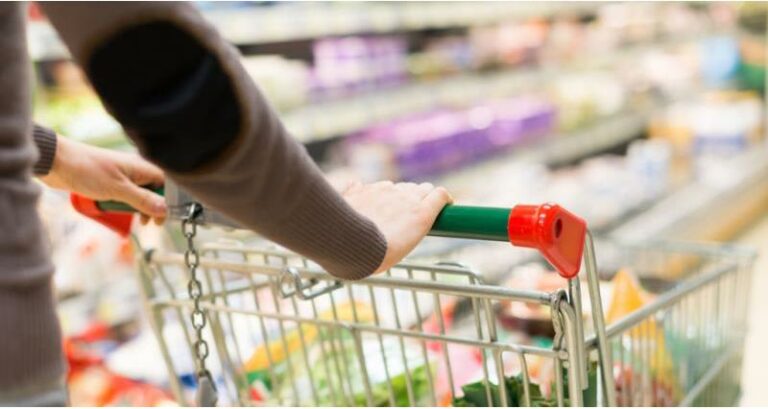Grocery price inflation has fallen to 3.2% over the four weeks to 14 April, marking the fourteenth monthly drop in a row, according to new figures from Kantar. The decline has been aided by a significant increase in promotional spending, with items bought on offer making up 29.3% of supermarket sales – the highest level outside of Christmas since June 2021. Overall take-home grocery sales rose by 3.3% this month.
“We’ve been monitoring steady annual growth in promotions over the past 11 months as retailers respond to consumers’ desire for value,” said Fraser McKevitt, head of retail and consumer insight at Kantar.
Ocado was again the fastest growing grocer this month, improving sales by 12.5% in the 12 weeks to 14 April, ahead of the total online market which grew by 6.8%. The retailer accounted for 1.9% of take-home grocery sales, up from the 1.7% it held a year ago. Meanwhile, total online reached a share of 12.0% for the first time since July 2022.
Britain’s two largest grocers, Tesco and Sainsbury’s, both gained 0.4 percentage points of share in the latest 12 weeks, holding 27.4% and 15.3% of the market respectively. Sainsbury’s’ sales increased by 6.8% and Tesco grew by 5.9%.
Lidl achieved a record 8.0% share of the market, also up by 0.4 percentage points versus a year ago, fuelled by sales growth of 9.1%. Fellow discounter Aldi reclaimed the 10.0% market share it last held in September 2023, increasing sales by 2.8%.
Morrisons held its portion of the market flat at 8.7%, the best share performance for the retailer since 2021, with spending through its tills up by 3.8%. Waitrose and Iceland also retained their market share positions at 4.5% and 2.2% respectively. Both retailers saw sales growth of 3.7%.
Asda now holds 13.4% of the market, while Co-op accounts for 5.4%.


